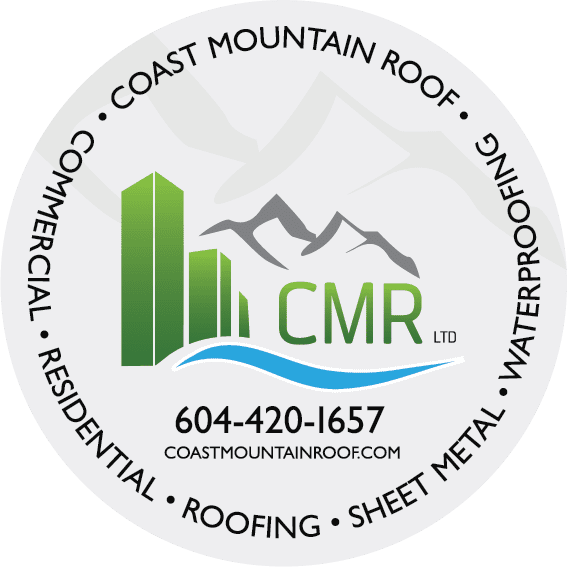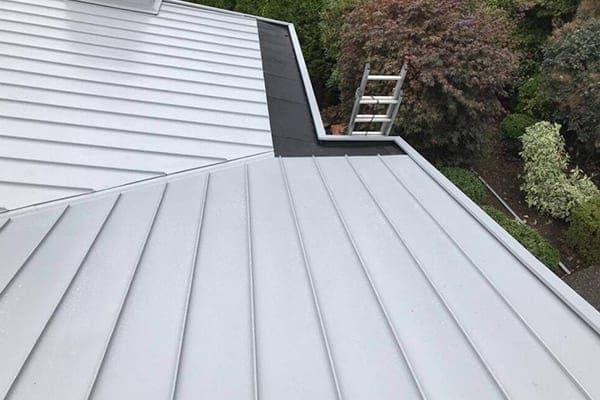In constructing a roof, you may have heard of the term “cladding.” Cladding involves covering building materials with an added layer to provide additional aesthetic and practical advantages. While a variety of materials can be used for cladding such as wood, plastic, and stone, the most popular form of cladding is metal. Most metal cladding panels are formed from steel or aluminum which provide an array of benefits.
Doesn’t metal get hot though? Perhaps you’re getting a flashback to that hot summer’s day when you felt the scorch on your legs from going down that metal slide. Despite the benefits, you may be worried about the heat factor associated with most metal materials. So, the question is: will this layer of metal add unwanted heat to your building?
No, when properly constructed, the metal cladding will not make your building hotter, in fact, it’ll do quite the opposite. It’s true that metal is a known conductor of heat, and while most metal structures will get warmer when exposed to hotter weather, there are methods of construction that prevent this unwanted heat. Proper construction companies such as Coast Mountain Roofing, have the expertise and experience to equip your metal-clad roof with heat fighting capabilities.
Table of Contents
The Level of Absorbance of Metal Materials
Contrary to popular belief, metal roofs do not make a house hotter than other types of roof materials. Metal roofs have a low thermal mass: rather than absorb light and heat, they’re built to reflect these elements resulting in a cooler, more energy-efficient home. So, while there’s no need to worry about your metal cladding turning your building into a sauna, you should consider the varying degree to which your roof is designed to fight off the heat. The level of absorbance of metal materials depends on several factors:
1. Color and Finish
No matter the material used, whether it be natural stone, asphalt shingles, or metal cladding, darker roofs are going to absorb more heat than lighter ones. While metal is better at reflecting heat in general, you can maximize this effect by choosing a lighter shade of materials.
Just as the color affects a roof’s heat absorption, so does the finish. There are several coatings and finishes that can be applied to a metal-clad roof that can increase sun reflection. Therefore, even when exposed to direct sunlight, the finish will counteract these heat rays and increase your roof’s cooling effect.
2. Metal Mass
Throughout the day, a roof will retain a certain level of heat. The more direct sunlight a roof gets, the hotter it will become. As the sun goes down and the surrounding areas cool, so will your roof. The thicker your roof is, the longer it will take to release any heat collected throughout the day. Metal cladding is typically lighter than most roofing materials already which allows it to lose heat the fastest. Opting for a thinner type of metal can maximize these benefits.
3. Construction of the Roof
While the color, finish, and weight of the roofing materials affect the amount of heat collected, the biggest contributor to fighting unwanted heat lies in the assembly of the roof.
4. Insulation
When constructing a metal roof, it’s important to plan for the method of insulation. Utilizing deep wall cavities allows room for extra layers of insulation to combat the heat in the summer and retain it in the winter.
5. Ventilation
To further cool your building, strategically placed windows, doors, and vents can allow cross ventilation to help circulate air throughout the space. When working with an experienced roofing contractor, such as those at Coast Mountain Roofing, they will install your metal roof with efficient ventilation in mind. A combination of ridge vents and soffits allows air to circulate out of the space below the roof, to maximize cooling in the hotter months.
Why Should You Choose Metal Cladding?
Cool metal roofs use painted or coated metal products that reflect the sun’s energy to dissipate heat rays. Proper venting and insulation, reduce heat transfer and can lessen the costs of cooling the building. Furthermore, metal cladding is versatile, durable, and built to last. It’s perfect for BC’s extreme weather conditions and can be made to suit any style of architecture.
Metal roofs withstand shrinking and cracking, resist rot and decay, and hold strong in extreme winds and storms. As it’s 100% recyclable, metal cladding is not only beneficial to your home, but to the environment. This is a great method to help your building fight off heat and be more energy-efficient.
Roofing contractors such as Coast Mountain Roofing are the best in Vancouver for a reason. With their level of experience and expertise, Coast Mountain can build you a roof that requires minimal maintenance. They stand by their work and provide excellent warranties because with their level of fine craftsmanship, they can build you a roof that lasts.

Brad Gordon and his team of professionals have been installing roofing, waterproofing and architectural sheet metal systems in the Greater Vancouver area for over 20 years.

